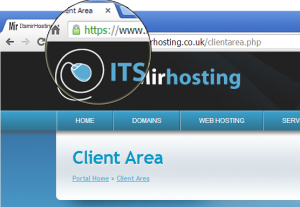HTTP v HTTPS
 When visiting different web pages you will see the address in the address bar begins with either http:// or https://. Should you worry about these strange letters? Unfortunately, with the rise of identity theft and internet fraud, yes you should be aware of what these mean and how they can change the way you use the internet.
When visiting different web pages you will see the address in the address bar begins with either http:// or https://. Should you worry about these strange letters? Unfortunately, with the rise of identity theft and internet fraud, yes you should be aware of what these mean and how they can change the way you use the internet.
What is HTTPS?
HTTPS stands for Hyper Text Transfer Protocol Secure and is the secure version of the standard HTTP protocol. HTTP is the protocol which allows communication between your browser and the internet. When a website is using HTTPS it is encrypting the data that is sent and received on that page so that the information cannot be accessed by any party other than the client and end server.
You will most commonly see HTTPS being used on ecommerce sites where sensitive financial information such as credit card details and passwords are being transmitted. NEVER submit private details to a website without seeing the https:// at the beginning of the webpage address and the padlock icon.
How Does HTTPS Work?
When using a webpage with an HTTPS connection the web server responds to the initial connection with by offering a list of encryption methods it supports. In response the browser selects a connection method and the browser and server exchange certificates to authenticate their identities. Once both parties have ensured they are using the same encryption key and the connection is secure, the encrypted data can be sent.
There are two common types of encryption layers: Transport Layer Security (TLS) and Secure Sockets Layer (SSL), both of which encode the data records being exchanged.
SSL Certificates
SSL certificates are the most common way web pages can authenticate their identities with a web server and use the HTTPS protocol. These certificates are issued by a ‘certificate authority’ (CA) and are validated by them. To see more information about the SSL certificate a site with https:// is using simply click on the padlock icon













